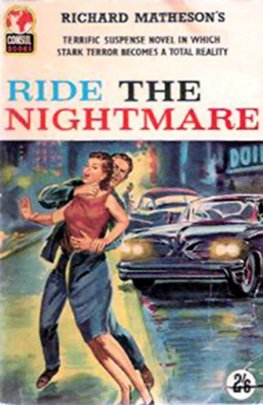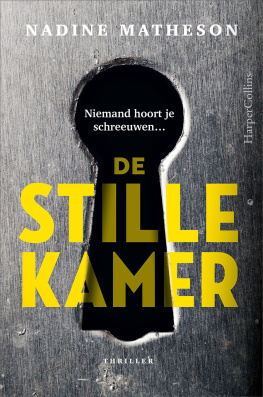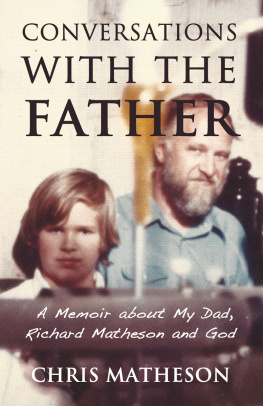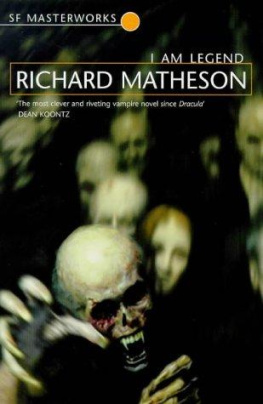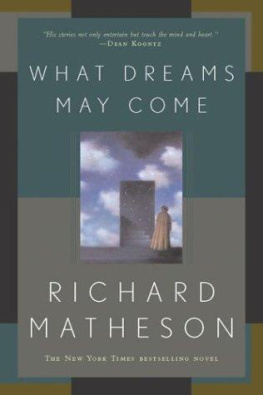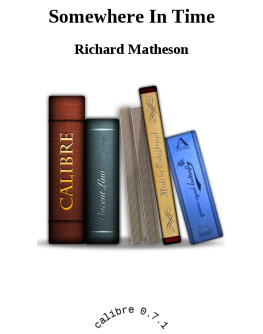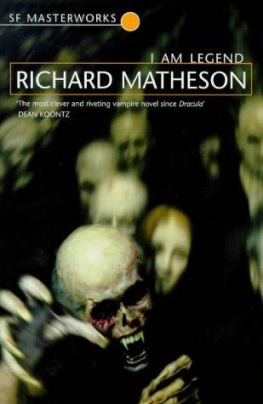
Love and Terror in the Third Reich
A Tale of Broken Integrity
Peter Matheson and Heinke Sommer-Matheson
Foreword by William F. Storrar
LOVE AND TERROR IN THE THIRD REICH
A Tale of Broken Integrity
Copyright 2019 Peter Matheson and Heinke Sommer-Matheson. All rights reserved. Except for brief quotations in critical publications or reviews, no part of this book may be reproduced in any manner without prior written permission from the publisher. Write: Permissions, Wipf and Stock Publishers, W. th Ave., Suite , Eugene, OR 97401 .
Cascade Books
An Imprint of Wipf and Stock Publishers
W. th Ave., Suite
Eugene, OR 97401
www.wipfandstock.com
paperback isbn: 978-1-5326-6118-1
hardcover isbn: 978-1-5326-6119-8
ebook isbn: 978-1-5326-6120-4
Cataloguing-in-Publication data:
Names: Matheson, Peter, author. | Sommer-Matheson, Heinke, author. | Storrar, William F., foreword.
Title: Love and terror in the Third Reich : a tale of broken integrity / Peter Matheson and Heinke Sommer-Matheson ; foreword by William F. Storrar.
Description: Eugene, OR: Cascade Books, 2019. | Includes bibliographical references.
Identifiers: ISBN: 978-1-5326-6118-1 ( paperback ). | ISBN: 978-1-5326-6119-8 ( hardcover ). | ISBN: 978-1-5326-6120-4 ( epub ).
Subjects: LCSH: SoldiersGermanyCorrespondence.| World War, 19391945Personal narratives, German. | GermanyHistory19331945.
Classification: D811.A2 M 2019 (print). | D811.A2 (epub).
Manufactured in the U.S.A. April 30, 2019
Table of Contents
To our parents, our children, and our grandchildren
Foreword
W e live in a disturbing moment in European history. We see the alarming acceptance in the media and public life of racist and anti-immigrant rhetoric by elected politicians and government leaders. Bullies that they are, they rage against the most vulnerable in European society, indifferent to the rise in hate crimes with their every jugular or jocular utterance against refugees, migrants, veiled Muslim women, and Jewish citizens. This was something unthinkable in the decades after the Second World War and Holocaust for all but a squalid handful of backstreet thugs and their gang leaders on the violent fringes of electoral politics. Yet we are now witnessing the enactment of these very same ethnic nationalist prejudices by democratically elected governments that brazenly employ such populist hate speech across the Continent. Those of us who naively believed that postwar Europe was the new heartland and hope of liberal democracy, the rule of law, human rights, and transnational cooperation in the world are bewildered by the rapidity and ferocity of this change in the European political climate within a mere decade of the global financial crash in 2008. How could this happen, we ask?
We are like the accident victims staggering in shock out of a wrecked family car. It seemed so safe as we daydreamed our way along a familiar route to a known destination, only to find ourselves skidding out of control in a sudden downpour of racist bile on the public highway. There are many reasons for this current collapse of public decency in Europe, but the loss of recent historical memory is threaded through them all. In the early 1990s I was an academic observer at the congress of the European Peoples Party in Brussels, sitting with the Dutch Christian Democrat delegation in this meeting of the center-right political parties in the European Parliament. I vividly remember the then German Chancellor Helmut Kohls speech to the congress. Without mentioning her by name, he spoke of those like the British prime minister Margaret Thatcher, who saw closer European cooperation as a threat to national sovereignty. Idioten! he cried, and then turned warmly to his friend Leo Tindemans, a former prime minister of Belgium, and said in effect, Leo, we shall never forget meeting after the war as young Christian Democrats amid the ruins of a divided Europe, destroyed by nationalism. We determined then, Never again! Sadly, with the passing of that young wartime generation, Europe has forgotten, and it is happening again. The idioten are not only on the streets once more. They are back in power. That is why this extraordinary book is so timely. It asks the same question: How could such things happen?
What was it that led ordinary, caring people to see Hitler as their saviour, to embrace apocalyptic dreams of revenge and conquest which swept aside all sobriety, rationality, and morality? With this disturbing question Peter and Heinke take us immediately to the heart of the heartrending story they have translated and told here with breathtaking candour. They show us how a devout young Christian couples loving and tender correspondence in wartime Europe is marbled through with devotion to the Nazi cause. The couple in question, Lilo and Ernst, are none other than Heinkes parents and Peters in-laws. The authors have thus achieved the delicate and brave feat of combining critical scholarship (in documenting this unholy allegiance) with compassionate empathy for their loved ones: so close to them in human flesh, and yet so far from them in political values. Lilo and Ernsts translators and interpreters have done nothing less than tell the truth in love. In these pages they show us how to do so with integrity. For this is not the lurid expos of a skeleton in the family closet, but the painstaking restoration of a self-portrait in words by two fine people of faith who yet wore the swastika with pride. What are we to make of it all?, the authors ask of their loved ones letters, and prompt us to ask in turn.
The Scottish writer George Gunn has commented on the return of racism in contemporary British public life by quoting the ancient Roman historian Suetonius. In his biography of Caligula there comes a turning point when Suetonius says, So much for Gaius the Emperor; the rest of this history must needs deal with Gaius the Monster. Love and Terror in the Third Reich is not about two monstrous Nazis, but it does help us to understand how Germany turned from a constitutional republic into the totalitarian fiefdom of Hitler the Monster, precisely through the enchantment of evil under the guise of national emancipation. Yet our Christian couple cannot escape moral responsibility for the Nazi loyalties in their correspondence. Their love letters are a cameo of a complex history that must needs deal with the Monster of National Socialism. In his account of how the birthplace of Goethe and Beethoven became the builder of Belsen and Buchenwald, the German sociologist Wolf Lepenies concludes that Hitler was able to seduce Germany into the abyss because ordinary people did not speak out in protest the very first time their neighbor or colleague was vilified or taken away: ordinary people like Lilo and Ernst. It was then the Monster knew the fabric of decency was rent asunder and the terror could begin. The same holds true in Europe today. Heinke and Peter enable us to understand this deal with the devil, then and now. Lest we forget.
William F. Storrar
Director
Center for Theological Inquiry
Princeton, New Jersey
Acknowledgments
T his book had a long genesis, and many debts have been incurred on the way: to computer technicians and advisers, and to friends and encouragers. We cannot name them all, but would single out Heather Cameron, Kevin Clements, Lindsay Matheson, Andrew Schuller, Brett Knowles, John Miller, Will Storrar, and the editors and staff of Cascade Books, who offer a rare combination of efficiency and human warmth. This book would not be here without them. Our heartfelt thanks go to all of them.




